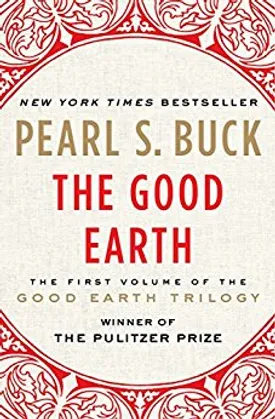Pearl S. Buck
Pearl S. Buck was an iconic and incredibly successful author who wrote over thirty books during the course of her lengthy writing career. While best known for her Pulitzer Prize-winning novel The Good Earth, she wrote novels, short stories, essays, biographies, and translations of Chinese literature. Many of her works were devoted to exploring the Chinese cultural experience, and she was dedicated to accurately representing their culture in her works, even when it disagreed with her own personal opinion.
Buck was born in Hillsboro, West Virginia on June 26th, 1892. She was born to missionary parents, Absalom Sydenstricker and Caroline Stulting Sydenstricker. Her parents were deeply dedicated to their calling, and thus decided to move to China shortly after Pearl’s birth. Over the course of her early life, Buck lived in China’s Pearl River Delta and the Anhui province of China, but she returned regularly to the United States for her education.
However, despite her frequent visits to America, Buck never felt herself a true American, citing her deep and abiding love for China, where she began and also ended her writing career. In 1911, she was admitted to Randolph-Macon Woman’s College (now Randolph College) in Lynchburg, Virginia. She returned to China, and soon found her way into prestigious educational institutions such as the institution in Nanjing, China.
Not long after graduating, Buck began writing prolifically. One of her first major works, a autobiographical novel titled East Wind: West Wind was published in 1930. This novel proved the the beginning of her string of literary successes, as it was immediately lauded by critics and readers alike.
The following year, Buck would win the Pulitzer Prize for The Good Earth. This novel focused on Wang Lung, a Chinese peasant farmer who struggles with famine, natural disasters, and a larger societal scorn for his beliefs in the face of a changing country. The novel was a powerful and important read, and was also lauded for its historical accuracy. She was also awarded the Nobel Prize for Literature for The Good Earth in 1938.
Buck wrote many more books throughout her life, including The Pagan, China Sky, A House Divided, Dragon Seed, The Big Wave and many more. She was exceptionally interested in the plight of Chinese culture, and the unknown tragedies and unique stories experienced by Chinese people throughout their history.
What truly made Buck special, however, was her staunch belief in the humanity of Chinese people. She strongly opposed Western cultural imperialism, and dedicated her life to providing a voice to the Chinese culture through her writing. Through her works of nonfiction and fiction, Buck painted a vivid and accurate picture of Chinese life that still captivates readers to this day.
Pearl S. Buck’s unique ability to represent, defend, and promote Chinese culture in her works made her a standout author in the 20th century. Her works of fiction, especially, were a powerful and accurate exploration of the human condition and the changing Chinese culture. The impact of her works cannot be denied, and her stories are sure to be read for generations yet to come.

